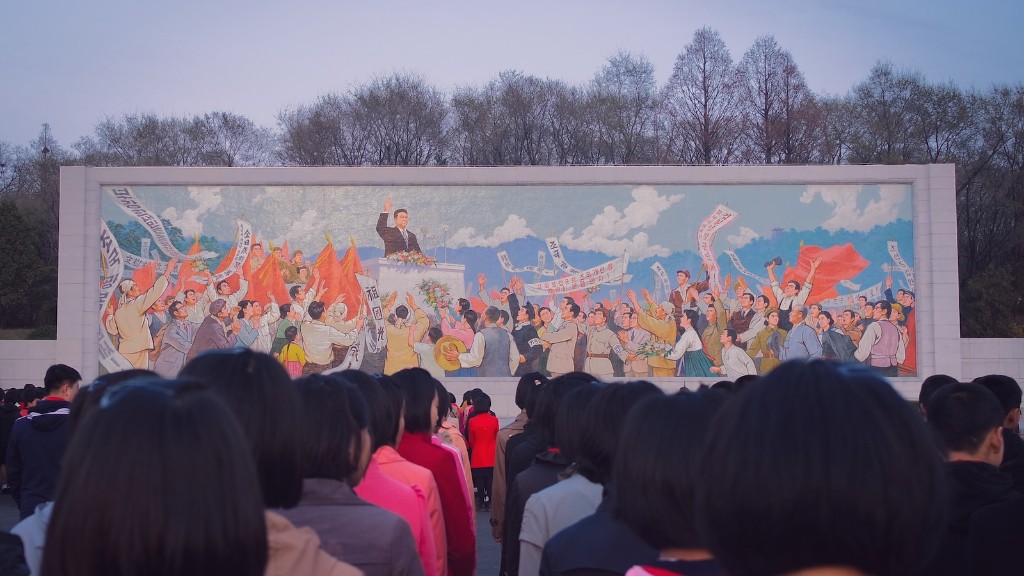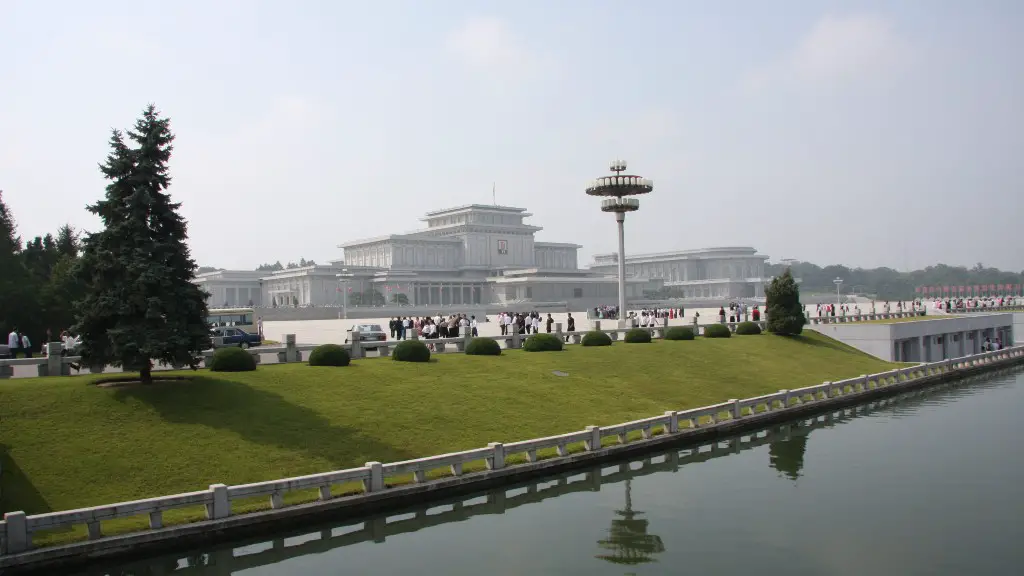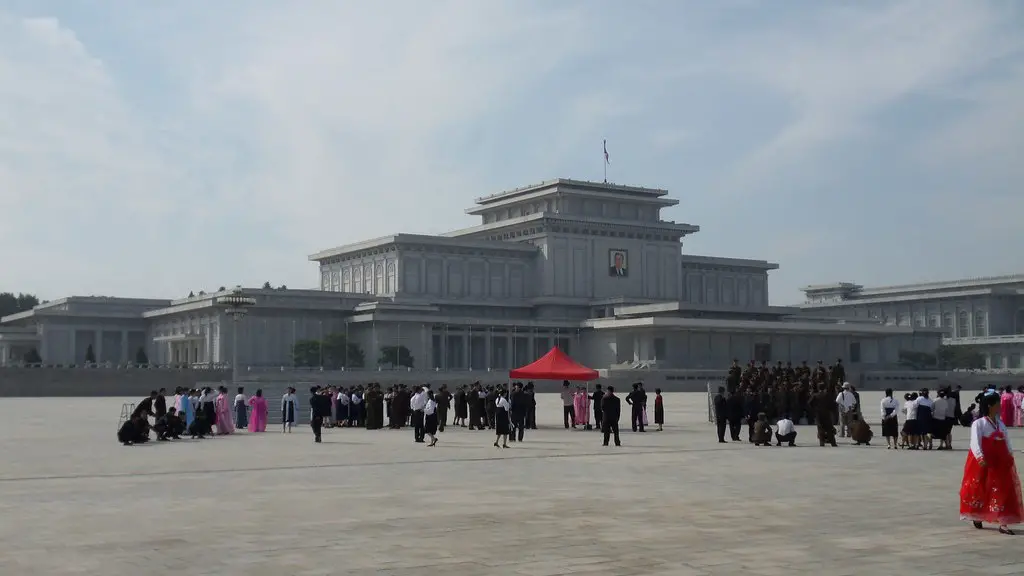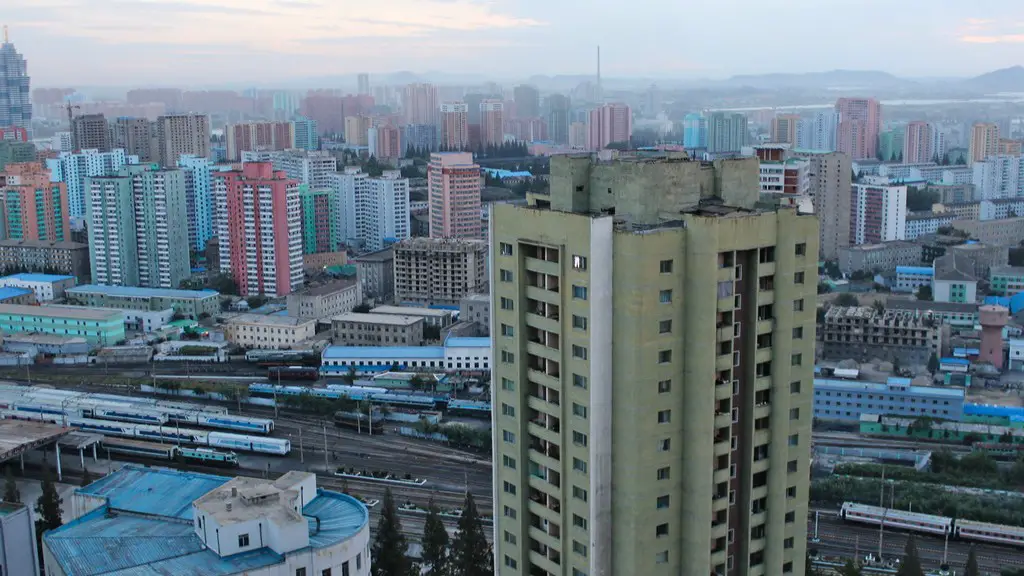As the world continues to grapple with the uncertainty of the coronavirus pandemic, North Korea remains shrouded in mystery. Now more than ever, citizens of the world must ask: how many cases of COVID-19 are present in North Korea?
The answer is not clear. In an unusual move, North Korea has publicly stated that no COVID-19 cases have been recorded within its borders. Some health experts, however, are skeptical. North Korean officials have provided no evidence to support their assertion, even though they issued an emergency quarantine directive in January.
That same month, World Health Organization officials expressed “grave concern” about the lack of information coming from North Korea. They noted that the country has no meaningful public health surveillance system, and that its reported figure is not supported by any credible data.
Many experts believe that North Korea is deliberately downplaying or hiding the true number of cases. In February, Jiro Ishimaru–an investigative journalist with decades of experience working in North Korea–said that he believes the North Korean government is “concealing its true numbers as a way to keep up appearances.” He added that the country has a “long history of trying to control the flow of information.”
The lack of data makes it impossible to determine exactly how many people in North Korea are infected with COVID-19. It also makes it difficult to assess the severity of the outbreak and the country’s level of preparedness. In March, a team of World Health Organization experts visited Pyongyang to discuss the country’s response to the pandemic. They noted that North Korea had implemented “effective measures” to contain the virus and that the government had provided “adequate” resources to its citizens.
Despite these measures, North Korea’s economy has suffered greatly due to the pandemic. The country has closed its borders, which has crippled its already fragile tourism industry. Its already inadequate healthcare system has been further strained by the virus. It is unclear whether North Korea has the resources it needs to effectively combat the virus.
What is certain is that North Korea’s attitude towards the virus has come under scrutiny from the international community. It is unlikely that the country will reveal any reliable information unless it is compelled to do so. Until then, the world will remain in the dark about the true number of COVID-19 cases in North Korea.
North Korea and Vaccination Efforts
The extent to which North Korea is using vaccines to fight the Coronavirus is unknown. Reports from Reuters state that the country had received “a small number” of vaccines by December 2020. However, as of early 2021, no official reporting about vaccination efforts has been disclosed to the public. In addition to a lack of data, rumors and speculation abound about which countries have been delivering vaccines to North Korea. Recent reports suggest the vaccines came from China or Russia—but it is impossible to verify these claims.
What is known is that the vaccination of North Korea’s population is likely to be a slow process. North Korean officials have identified health workers and the elderly as the first priority, as these demographics are most vulnerable to the virus. The general public is not likely to be vaccinated until the second half of 2021, assuming the international shipments of vaccines continue.
Given the country’s poverty and limited healthcare infrastructure, the rollout of the vaccine will be a challenge for the North Korean government. The very tight sanctions imposed by the United States will further complicate this process. It is still not clear who will be responsible for financing the millions of vaccines that would be needed to immunize the entire population.
Another challenge facing the North Korean government is the difficulty to track population information. This makes it difficult to measure the efficacy and success of the vaccination drive. The government must also manage the vaccine supply chain—a process that requires precise forecasting, specialized training, and data analysis.
North Korea’s Relationship with South Korea
The current relationship between North Korea and South Korea has been largely defined by the Coronavirus pandemic. While North Korea maintains its firm stance against outside assistance, South Korea has offered assistance in managing the crisis, such as shipments of medical supplies. In response, North Korea has officially turned down the offer and asserted its determination to remain independent in managing the outbreak.
The relationship between North and South Korea was already strained prior to the pandemic. Years of international sanctions and political tensions have made it difficult for the two countries to cooperate on any matter. North Korean officials have been particularly critical of South Korea’s close relationship with the United States and its “maximum pressure” approach to the North.
The pandemic has only heightened tensions between the two countries. South Korean President Moon Jae-in’s offers of assistance have been met with skepticism and outright hostility by North Korea. This puts Moon in a difficult position; on one hand, he does not want to be seen as supporting the North’s oppressive regime, but on the other, he feels morally obligated to help.
The current situation has further complicated the process of reunifying the two Koreas. North Korea has made it clear that it will not allow outside aid or meddling in its affairs while South Korea has taken a more measured approach. It remains to be seen if the pandemic will bring the two countries closer together or push them further apart.
North Korea and the IMF
The International Monetary Fund (IMF) is one of the few international organizations that has been able to penetrate North Korea’s insular economy. In February 2021, the IMF launched a Special Drawing Rights program, an initiative that provides financial assistance to countries to aid them in dealing with balance of payment crises. North Korea was one of the countries selected to receive this assistance.
The program provides North Korea with a much-needed boost to its struggling economy. IMF chief Kristalina Georgieva said in a statement that the assistance “will help North Korea during this crucial period, as well as contribute to its long-term stability.” The IMF has already provided the North Korean government with $9.9 million in assistance.
Some analysts have expressed skepticism about the real impact of this program. Many experts have noted that North Korea’s economy has largely been isolated from the global financial system due to the country’s insular government. They also point out that the small amount of assistance will do little to alleviate the severe economic crisis within the country.
Nevertheless, the move has been seen as a first step towards opening up North Korea’s economy. The IMF has suggested that North Korea should pursue market-oriented economic reforms and diversify its sources of financial assistance. Whether the North Korean government will be willing to accept this advice remains to be seen.
North Korea and Cybersecurity Issues
The increasing reliance on technology to manage public health during the pandemic has raised questions about North Korea’s cybersecurity infrastructure. Despite its government’s strict control of information, North Korea has long been suspected of being vulnerable to outside hacking and malicious activities.
A report by the Organization for Economic Co-operation and Development (OECD) identifies North Korea as one of the top five countries that sponsored cyber-attacks in 2020. Further investigation revealed that the hacker group “Lazarus” was tied to North Korea, as it had been caught conducting numerous digital intrusions and fraud.
Moreover, North Korea has been accused of using cyber tactics to target businesses and governments from around the world. In March 2021, the US government concluded that North Korea was behind a massive ransomware attack that targeted Copa Airlines, a major Latin American carrier.
The increase in cyber-attacks targeting North Korea is a cause for concern. The country has been slow to adopt the latest cybersecurity measures, and its government is seen as ill-prepared to handle such a sophisticated type of cybercrime. North Korea’s limited access to the internet makes it extra vulnerable to outside interference.
Analysts have suggested that North Korea needs to strengthen its cybersecurity measures to protect its public and private infrastructure. The country should also work towards establishing a more coordinated relationship with the international community in order to better protect its citizens.





